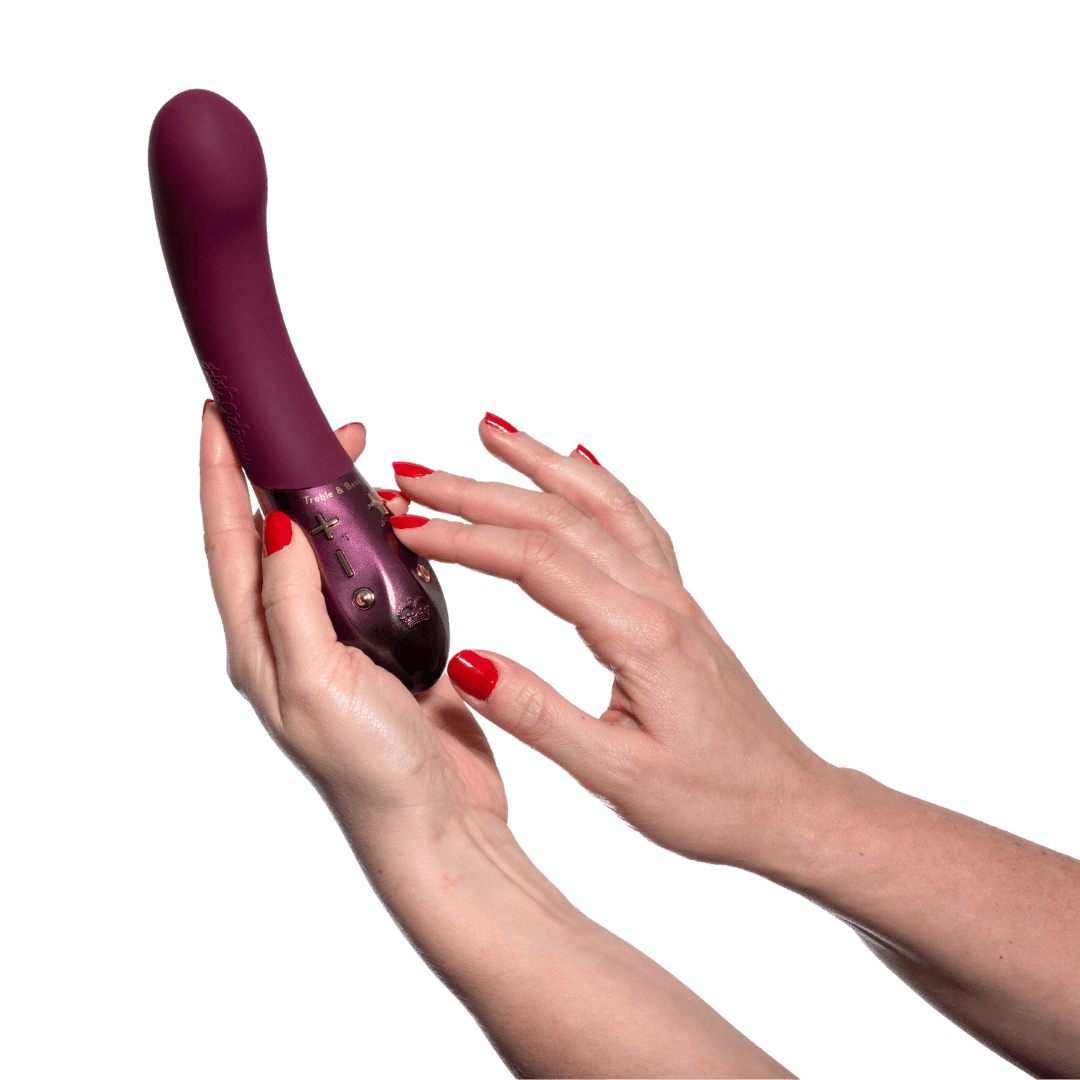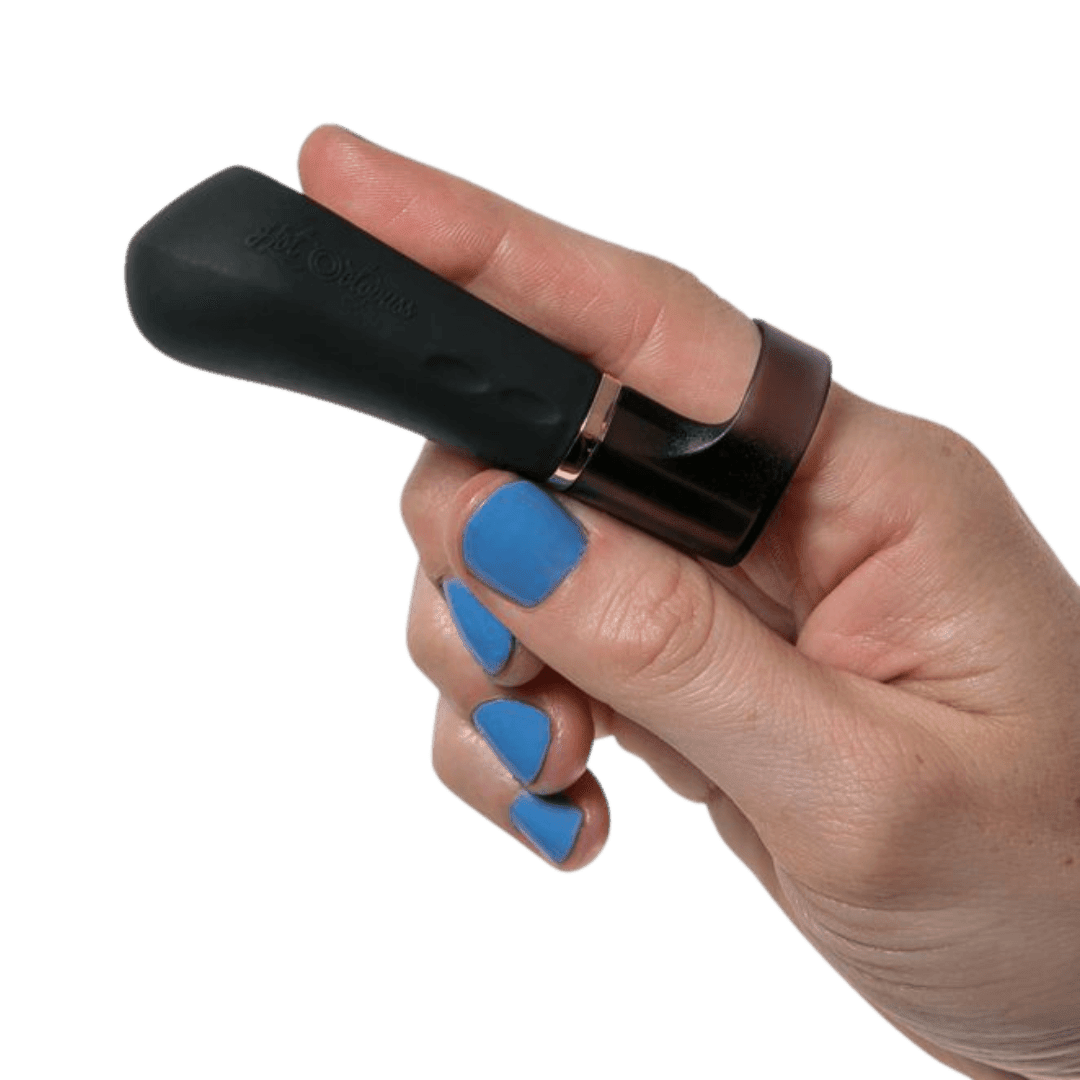Vaginismus: Interview With An Expert
21 July 2021


As part of our ‘Sex Not Stigma’ mission, we’re keen to shine a light on some of the sexual topics that are less frequently talked about. Often with sexual issues like vaginismus, one of the most difficult things is working out whether you have it, and where you may be able to get help. So we spoke to Sarah Berry – a psychosexual and relationship therapist – to find out more about vaginismus. What is it, and what advice could she give to those who may be affected by it?
What is vaginismus?
Vaginismus occurs when a woman’s body tries to protect her from being penetrated – not just by a penis, but by anything including fingers, sex toys, tampons, medical instruments and more. Vaginismus is often a symptom of something. So while it’s very possible to enjoy sex without penetration, it can be a sign that something else is amiss.
There are two types of vaginismus:
- Primary vaginismus, where the person has always found penetration difficult.
- Secondary vaginismus, where it came on later in life.
Secondary vaginismus can be the result of trauma, for example if the person has had abuse, rape, a difficult medical procedure or childbirth. It can be from being brought up in a house where sex or the body is seen as shameful or bad, or because they have experienced a difficult relationship themselves. Vaginismus can also arise from changes in the body such as menopause or if the person has had any pain, maybe from vulvodynia, cervical cancer or post natal issues.
How common is vaginismus?
There are many different figures on this but I would wager it is far more common as many cases go undiagnosed.
How does someone know if they have vaginismus?
The way medical professionals diagnose vaginismus is to insert a finger in to the vagina to see if it tightens, or from anecdotal evidence that this is happening. There are no other signs that someone has it – it won’t show up on a scan – so it can often go undetected.
Because many people are not aware of this condition, it’s sadly easy for people to sweep it under a carpet. In some cases I’ve seen people not go to smear tests, put aside dreams of being a mother or avoid relationships. It can also lead to depression or anxiety as people can feel a sense of helplessness or lack of control over their body – or from underlying trauma. Some people who are able to be penetrated, can still find it a very painful and traumatic experience – I’ve heard a client say they felt like a battering ram.
How do you go about treating vaginismus?
When I work with clients who have vaginismus I find it is important for them to work out their own journey to recovery. Firstly, I explain what vaginismus is, then I find out what the blocks are – is it intimacy, penetration, PTSD, how they feel about their vagina?
I look at what their relationship is to their vulva and vagina. Some people are able to masturbate their vulvas and orgasm while some people feel very detached from it, or even squeamish. Finding a word for it – whether it’s their vagina, fanny, yoni, another established term or even a made up word can be a start.
If they find it hard to touch it I might ask them, when they’re at home, to cup it through their knickers, then move on to feeling it when they are in the bath or shower. Drawing the vulva, which requires them to put a mirror between their legs, can be a great way of demystifying the vulva and vagina and becoming more acquainted with it with a kinder, more curious eye.
Are there any techniques you’d recommend for people with vaginismus?
In terms of “training the vagina” for penetration, the first stop is to locate the kegel muscles. These are the muscles that spasm on threat of penetration and cause the vaginismus. They are also the muscles that are squeezed when stopping urination. I get them to isolate these muscles by going for a wee then stopping it mid flow. If they can mimic this action when they’re not weeing, they can learn to squeeze and relax the muscles.
When they’re ready, start with something very small like their little finger or a cotton bud – perhaps covered in lubrication. Try to relax the kegels and then have a go inserting it. When they feel that it’s no problem inserting this, they can move to something bigger.
Are there any products available for people who have vaginismus?
The NHS can provide set of dilators – tubular instruments of varying sizes. But choosing something they like the look and feel of can be empowering. Sh! Women's Store is launching a vaginismus kit (on the 14th April) – which consists of four silicone dilators of various sizes, and a bullet vibrator which you can insert into each one, and Rocks Off do a range of bullet vibrators too.
What would you advise for couples in which one person has vaginismus?
I strongly recommend that couples and individuals do not have penetrative sex – whether it’s with strap ons or penises – while working on the condition.
This doesn’t mean that they can’t be intimate. The person with vaginismus can think about what sex and intimacy means to them. Do they have desire or get aroused? Do they fantasise? What could they do with their partner that feels fun, saucy, romantic or pleasurable that doesn’t cause any stress for either party. Make requests rather than demands and if you don’t like something, say why and try work together on something you both like. Also, having a partner do the training exercises, so inserting toys or fingers, help the person with condition to give up some control, build trust and partners to feel included.
Once the sufferer is able to feel relaxed being penetrated by whatever they are training with, then she may feel ready to build up to sex. It may go well the first time which is great. Sometimes after a good first time, it can be a bit tricky because expectations are high. Take it slow, give each other a lot of feedback and don’t plough on regardless. Have a plan B for if sex needs to stop. If one of you is excited maybe they want to masturbate. Do you hug? Do you need space? A cup of tea? Be clear and work together so that you aren’t just two naked people feeling awful and disconnected.
With one-night stands or flings, many people fear the moment when they say they don’t want penetrative sex. Some people feel that once they start explaining, they need to confess everything, which can break the mood, be re-triggering and feel exposing for the sufferer. If you do feel the need to talk at length, I would suggest talking about this before you get it on. My advice would be to work out a couple of sentences that explain what would you would like and why. Often people that you are with are just happy to be having fun with someone who can say what would feel good. Anyone who pressures anyone for penetration is not worth doing it with.
What would you say to someone whose partner has vaginismus?
Vaginismus can be frustrating for the partner. Both parties can doubt whether they are desirable, there can be a lot of friction and any form of intimacy can feel very loaded. There can be increased rows caused by either one’s frustration, jealousy of others, feelings of helplessness, anxiety, depression and more. Agreeing not to have sex, having a plan of action that can allow both partners to work together, airing fears and most of all finding ways to be connected and have fun together can be very beneficial. Couples counselling can help navigate this journey.
Some people with vaginismus just need to understand what it is and can then work through it on their own. For others, therapy can help them create a plan, work through any avoidance and understand, manage, move on or work through underlying issues and fall out from having vaginismus.
If the partner is penetrating with a penis, they may fear hurting the person with the condition. Or it could be that they haven’t had time to become fully aroused. Either way they lose their erection. Again, the plan B can help deal with this. The more both of you, in mind and body, understand that it is ok for it not to happen, the less pressure you will feel which can help it go more smoothly in time. The most important thing is to take your time, have space if needed, to have fun dates or time at home that doesn’t revolve around sex and to work as a team.
Huge thanks to Sarah Berry for taking the time to give us the lowdown on vaginismus. If you or a partner is affected by it, please share this article, and visit Sarah’s website. You might also like to visit the Sh! Women's Store vaginismus kit, which Sarah recommended above. You might also like to try the PULSE DUO, our couples sex toy which, with an external vibrator, can be used to have incredible sex without penetration.







